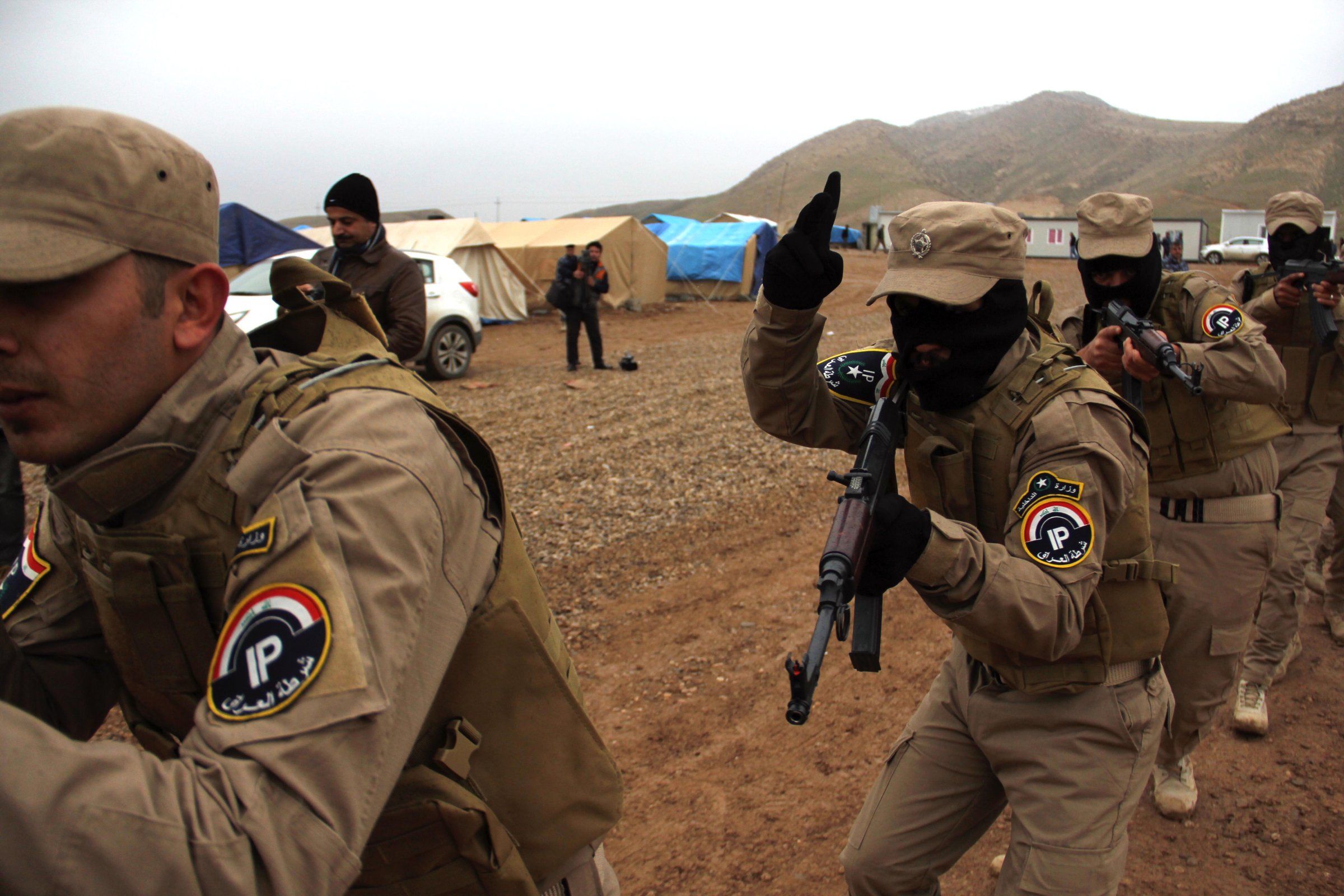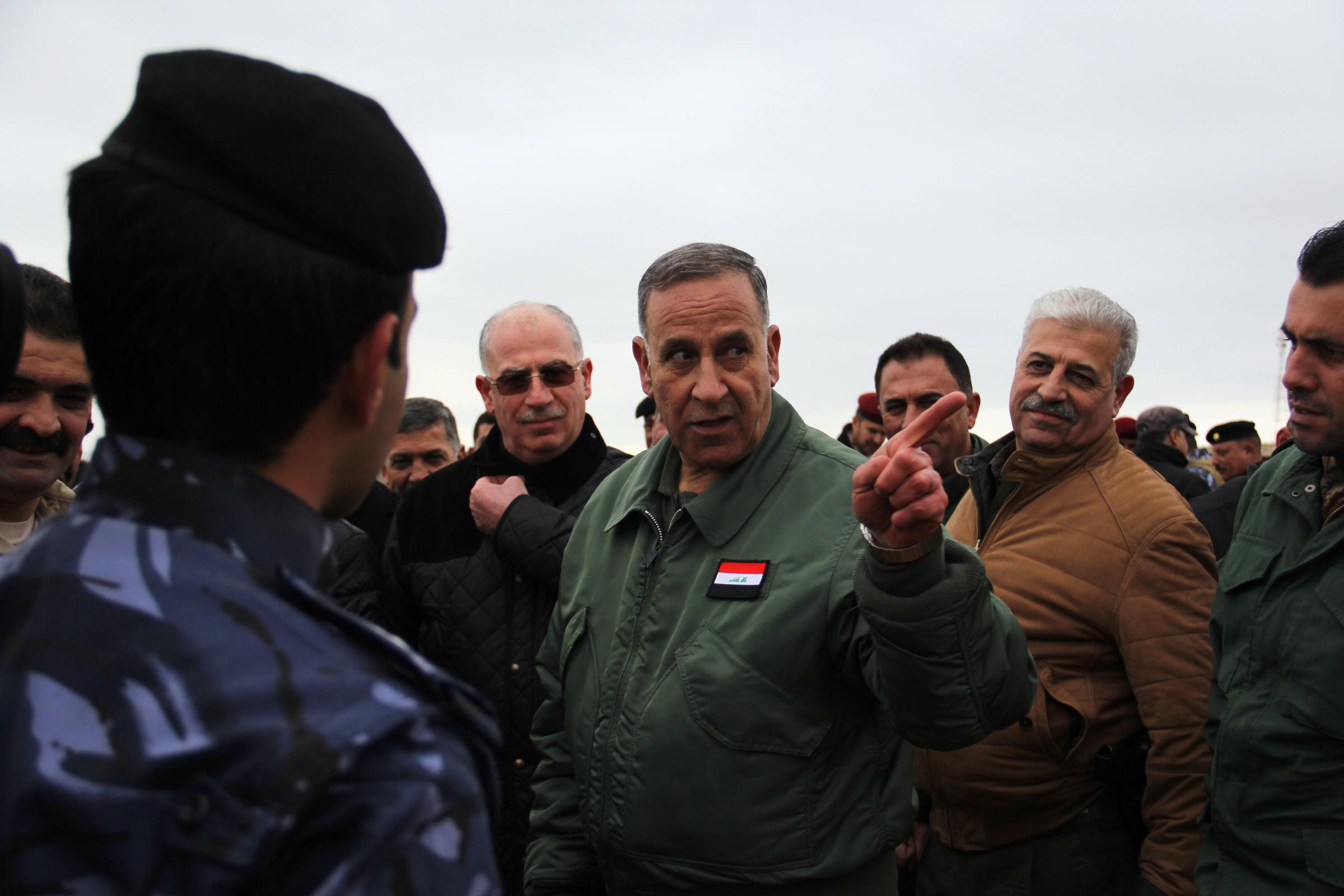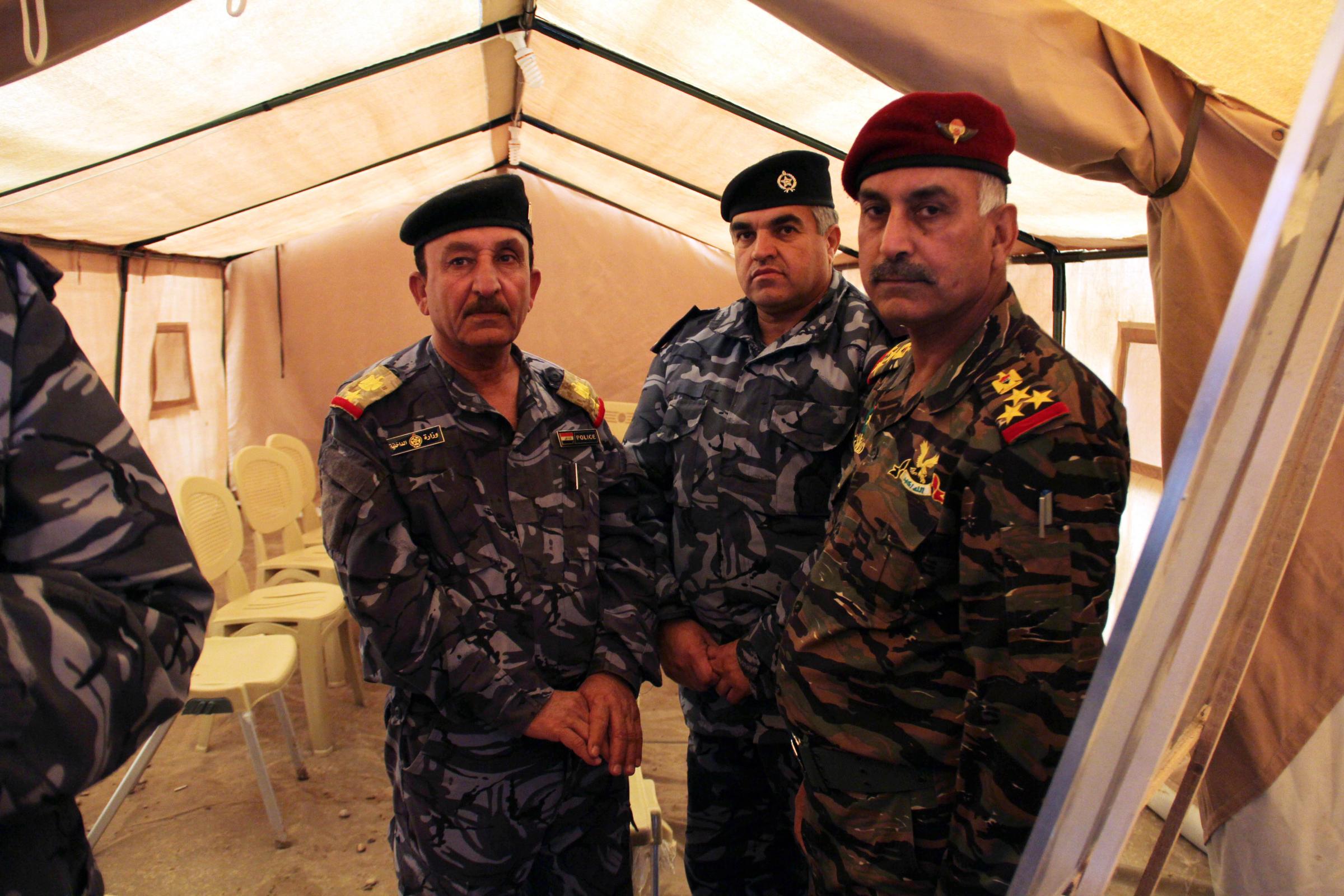
Under the watch of American advisors, dozens of Iraqi police practice marching in unison through a large gravel clearing, 20 kilometers from Mosul. Others sit as a trainer lectures them on how to use a mounted machine gun. Some practice searching an SUV for explosives.
This is the Mosul Liberation Camp, where more than 4,000 Sunni Arab police are training to retake their city from the Islamic State of Iraq and Syria (ISIS). “It’s my responsibility to take back my city from ISIS,” says Saad Mohmmed Khalaf who fled Mosul along with other police and army in June.
Mosul is the largest city ISIS controls, and the north-eastern edge of its caliphate which stretches through Iraq to western Syria. Ousting ISIS from Mosul may be the most difficult task facing the anti-ISIS coalition.
“Fighting in Mosul is like working in a minefield,” said Sadi Ahmed Pire. Pire, now a Kurdish politician, commanded Kurdish forces as they fought to take Mosul from Saddam Hussein’s army in 2003.
While the city is home to Christians, Kurds, Shi’ites and other minorities, it is majority Sunni Arab and many in the city welcomed the Sunni ISIS fighters after years of neglect and oppression from the Shi’ite-led government in Baghdad. There are some indications that the population has now become resentful of ISIS’s restrictive rule, but communications to the city have been mostly cut-off for more than a month and intelligence about the city is limited.
“The single most important aspect of insurgency warfare is control, or support, of the population,” said Christopher Harmer, a senior analyst with the Institute for the Study of War, who completed several tours with the U.S. army in Iraq. “One of the reasons that ISIS had such an easy time in conquering Mosul was that the existing Iraqi Security Forces…had lost the support of the local population.”
If the residents side with ISIS, taking the city will be almost impossible.

The dense urban nature of Mosul poses another problem. Much of the ground reclaimed by Kurdish and Iraqi national forces in recent months has been small, sometimes empty, villages and scarcely populated land. In Mosul, ISIS positions are embedded among the civilian population.
“It’s virtually impossible to do air strikes in dense urban area unless U.S. special forces are on ground, calling them in,” said Harmer. An air campaign against ISIS installations with limited intelligence in urban neighborhoods could result in high civilian casualties, he says.
So the offensive for the city will rely on ground troops. Kurdish leaders have made it clear they don’t plan to send their forces into the city this time. Mosul is outside the territory of the aspirational Kurdish state and their forces are already stretched along the 1,000 km-front they share with ISIS.
Few have faith the Iraqi army could, or would, retake the city. Manned with commanders and recruits from other parts of the country, the soldiers proved unable, or unwilling, to defend the city against the ISIS attack in June, according to the men here. Thousands of troops deserted their posts, dropping their weapons and uniforms as they fled.
“That was the main reason the city fell so quickly, because the commanders were from outside Mosul. They lacked both good management and good intentions,” says General Khalid al-Hamadani, the police chief for the Niveveh governorate, which includes Mosul. “From my experience, those from outside the city won’t sacrifice their lives for the city.”
The only hope then, he says, is the men training here. “The police here, we are all from inside Mosul,” said General Hamadani, adding they know streets and the layout of neighborhoods.
But the challenge is turning a few thousand policemen, who already ran away from ISIS, into a combat force able to retake an urban center from determined defenders.
“You can’t just inject men with courage and morale,” said Pire.
However, the trainers are trying and at times the camp seems more pep-rally than military exercise. Nationalist tunes and songs about defeating ISIS blast from a set of speakers next to a trailer that serves as General Hamadani’s office and men hoist their weapons — empty of bullets — as they chant and bounce up and down.
Over the music some of the men grumble that the Shi’ite-led government in Baghdad has been reluctant to support Sunni fighters here. Their salaries haven’t been paid since June and weapons are limited.

“You can’t liberate a city with these weapons,” says Moshir Al-Jabouri, who brags he shot down two American planes while fighting for Saddam Hussein’s army and earned 13 medals of bravery for his service under the deposed ruler. “The Americans and the coalition need to arm us now. We can’t depend on Baghdad to do it.”
While these men may be the front line ground troops, both Jabouri and General Hamadani say, they will need the support of the US-led coalition, Kurdish forces and the Iraqi army to take the city from ISIS. But many here are skeptical about getting the support they need from the central government.
“Baghdad doesn’t care about Mosul,” says Jabouri. “They don’t care how long it stays in the hands of ISIS.”
More Must-Reads from TIME
- Cybersecurity Experts Are Sounding the Alarm on DOGE
- Meet the 2025 Women of the Year
- The Harsh Truth About Disability Inclusion
- Why Do More Young Adults Have Cancer?
- Colman Domingo Leads With Radical Love
- How to Get Better at Doing Things Alone
- Michelle Zauner Stares Down the Darkness
Contact us at letters@time.com